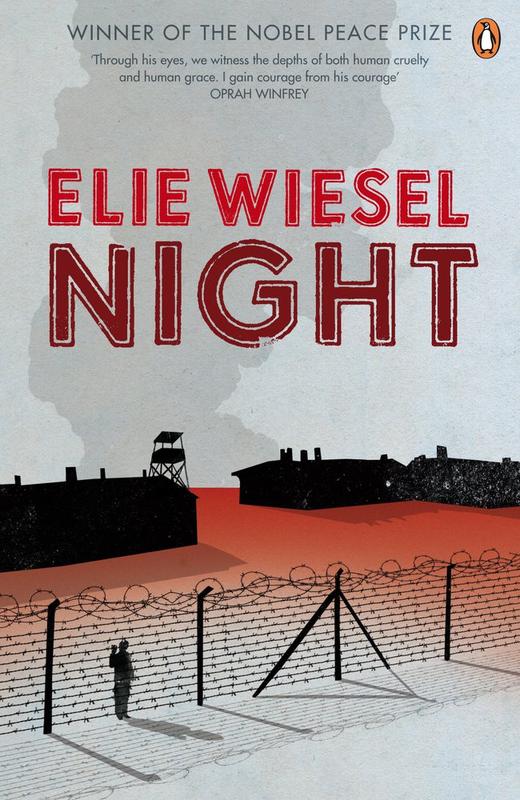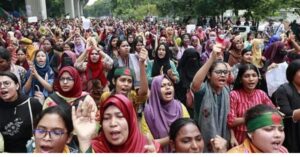Elie Wiesel (1928-2016) was a man of many things. The Elie Wiesel Foundation for Humanity paints him as a journalist, student, teacher, writer, activist, and a committed man of faith. It claims Wiesel as a singular figure in a world torn by conflict.

Nobody, I think, is going to undermine the man and his legacy. His Night, first published in 1956 as Und die welt hot geshvign (And the World Remained Silent), is an evergreen testament to his legacy. True to the New York Times’s claim that it is “A slim volume of terrifying power.” Praise after praise about this particular work as a human document of the unbearable pain of a Holocaust survivor has been spread in words and visuals.
His 1986 Nobel Peace Prize address is a cry for taking a stand for the oppressed and the torments across continents. One cannot but be awed with his words, “We must take sides. Neutrality helps the oppressor, never the victim. Silence encourages the tormentor, never the tormented…When human lives are endangered, when human dignity is in jeopardy, national borders and sensitivities become irrelevant. Wherever men and women are persecuted because of their race, religion, or political views, that place must–at that moment–become the center of the universe.” (pp.118-119, 2006 Penguin edition)
His views on the plight of the Palestinians can be taken as sincere and well-meaning,
“Human suffering anywhere concerns men and women everywhere…That applies also to Palestinians to whose plight I am sensitive but whose methods I deplore when they lead to violence. Violence is not the answer. Terrorism is the most dangerous of answers…The refugees and their misery. The children and their fear. The uprooted and their hopelessness. Something must be done about their situation.
He expressed his hope for an amicable resolution to the Israel-Palestine issue. As a man of committed faith, he offered, “Both the Jewish and the Palestinian people have lost too many sons and daughters and have shed too much blood. This must stop, and all attempts to stop it must be encouraged. Israel will cooperate, I am sure of that. I trust Israel, for I have faith in the Jewish people. Let Israel be given a chance, let hatred and danger be removed from their horizons, and there will be peace in and around the Holy Land.” (pp.119-120)
So far, his speech is remarkable for its humanitarian appeal and for his unflinching belief in men and women who will rise beyond the boundaries of race, religion, and language.
But when Wiesel affirms, “…I am a Jew profoundly rooted in my people’s memory and tradition, my first response is to Jewish fears, Jewish needs, Jewish crises…It would be unnatural for me not to make Jewish priorities my own: Israel, Soviet Jewry, Jews in Arab islands…But others are important to me.
Apartheid is, in my view, as abhorrent as anti-Semitism.” (p.119), he is making his deeply rooted Jewish cause clear. But he is sensitive to “others”.
And today, we know “othering” has taken a centre place in today’s literary and cultural discourse. His Jewish priority does not obviously make him parochial, as his earlier statements are sufficient to justify his universal and egalitarian outlook towards the tortured.
And when he asserts, “Please understand my deep and total commitment to Israel…Israel is the only nation in the world whose existence is threatened. Should Israel lose but one war, it would mean her end and ours as well. But I have faith. Faith in the God of Abraham, Isaac, and Jacob, and even in His creation. Without it no action is possible. And action is the only remedy to indifference, the most insidious danger of all.” (p.120)
A man who believes that neutrality helps the oppressor, a man whose words inspire us to “take side” with the oppressed, he, unfortunately, takes side with “his people”, the Jews across the world. He takes side with the Jewish people, Jewish history, Jewish memory and Jewish tradition. He may feel pain for the “others”, but his heart burns when a Jew faces persecution.
I somewhat agree with Amjad Iraqi (and many of his likes) when he exhibits frustration for Wiesel. He clarifies and crystallizes his arguments thus, As such, I have nothing but disappointment for the writer of that powerful book I read in high school. Elie Wiesel, who knows too well the hideousness of racist ideologies, should do better than to succumb to them himself blindly. In this conflict, he is not a messenger for mankind but a messenger for one ethnic group’s victory over others.
The Jewish people deserve their history, safety and identity in this land as much as Christians, Muslims and other Palestinians, especially in the shadows of anti-Semitism and the Holocaust. But they do not deserve it by uprooting and oppressing other people to achieve their goals and by claiming superiority of rights by virtue of their race or faith. That is the evil that men and women like Wiesel should be fighting against, not promoting.
To date, Israel has killed over 25000 people since October 2023. The victims of the Holocaust have been operating a genocide in Gaza. It is a genocide.
With the Death toll of the Israeli onslaught on Gaza topping 23,000 people since October 7, will the US and British governments establish a rescue group like the White Helmets in Gaza to rescue the civilians under the rubble and make a documentary on Netflix about them? pic.twitter.com/39CzkCnRKL
— Kevork Almassian🇸🇾🇦🇲 (@KevorkAlmassian) January 7, 2024




